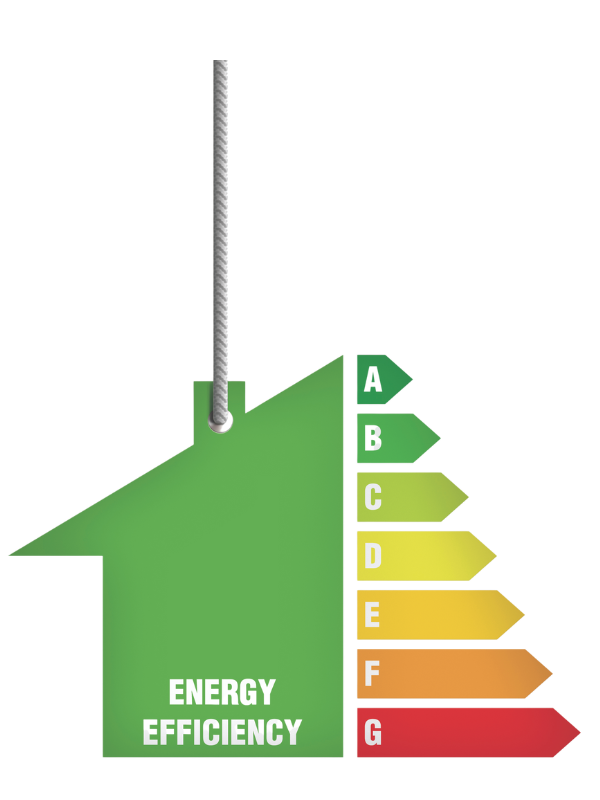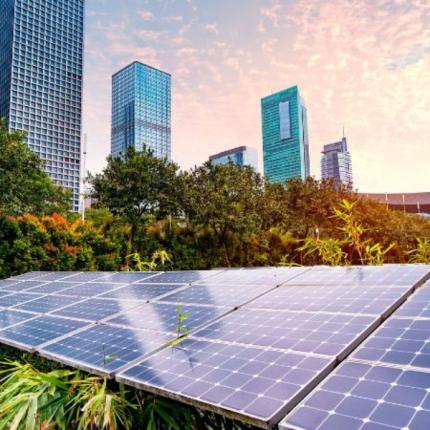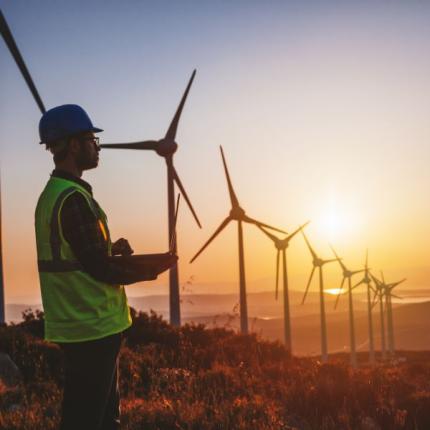State and federal agencies offer billions of dollars in energy efficiency rebates, but they’re difficult to access. Majid Ahmadi, a Ph.D. graduate from Georgia Tech’s Jimmy and Rosalynn Carter School of Public Policy, built an AI-powered tool to change this.
His company, EnergyEase, simplifies the process of making residential and commercial buildings more energy efficient by helping owners get funds for upgrades. It also helps make energy efficiency accessible to the people who need it most: low-income families who pay the greatest portion of their budget to energy bills but do not have the time or the disposable income to make changes.
“This is something I’m personally very passionate about — making sure those who really need these resources can access them now that they are available,” Ahmadi said.
The Problem
Energy efficiency rebates are government-funded opportunities to make houses or buildings more efficient.
For example, in some states, government rebates will cover some or all of the cost of upgrades such as insulating an attic or replacing an old HVAC unit. Some people can qualify for up to $15,000 in rebates.
However, figuring out what is available and what you may qualify for can be tedious and confusing.
Right now, people must fill out a form about their building’s age, construction materials, and other factors that homeowners may not know. They also have to schedule an auditor’s visit to confirm the information. All this must be done — and paid for — before they know if they’ll get anything in return. It’s enough of a barrier for many to refrain from starting the process at all, Ahmadi said.

The Solution
His company, EnergyEase, simplifies the energy audit process. The website retrieves information from EnergyEase’s database to help property owners determine their rebate eligibility in just a few minutes and see how much the upgrade will help them save on their monthly bills. Then, it’s easier to commit the time and energy required to get it done because they know the payoff is worth the effort, Ahmadi said.
“It makes the entire process efficient for people. For homeowners, for the states that want to target people with a higher energy burden, and for the contractors doing the job. We connect them and bring them all together under the same platform,” he said.
And the AI-tool doesn’t just help homeowners. The company also aims to work with real estate agencies to include the score in listings and help prospective buyers and renters make informed decisions, as well as with community organizations and financial institutions to help optimize development programs and determine who will benefit most from green loans or efficiency upgrades. Ahmadi plans to expand into the industrial and commercial building sectors as well.
Why now?
President Biden’s 2022 Inflation Reduction Act (IRA) designates federal funds for each state to use in energy rebates. Georgia will receive more than $200 million, and EnergyEase will help make sure they get where they need to go.
Ahmadi began with pilot programs and testing last year and EnergyEase is accessible in states that have officially launched their IRA programs. As of writing, several states including Georgia and New York have started releasing funds.
Why It Matters
Ahmadi and his Ph.D. advisor, Marilyn Brown, a Regents’ Professor in the School of Public Policy, co-authored a report for the Sierra Club on energy burdens in Georgia.
They found that energy efficiency is not easily accessible for residents and “even after decades of local, state, and federal funding of low-income energy programs, low-income energy burdens are not declining; they remain persistently high, particularly in the South and in rural America, in minority households, and in households with children and elderly residents.”
“This program can help them move up. If they spend less on utility bills, they’ll have more money to send their kids to a better school, invest in their children’s future, ease financial stress, or spend on other important priorities," Ahmadi said. "Historically, the Southeast has had a higher energy burden and other fundamental issues, but now there’s an opportunity for change."
The environmental impact of these rebates is also significant, especially in commercial buildings, Ahmadi explained. The building sector contributes to over one-third of energy emissions in the U.S., so addressing it is a crucial part of decarbonization.
“That’s why the government should allocate substantial resources to that sector,” Ahmadi said. “If we can get more people to take advantage of the funds available to them, the energy transition becomes more of a reality.”

Success at Georgia Tech
Ahmadi credits a combination of factors for his success today.
His Ph.D. in energy policy from and minor in AI helped him anticipate what’s coming next, identify gaps, and develop the analytical skills needed to address them. During the program, he took time off to work as a consultant at McKinsey and the World Bank Group, which exposed him to the real-world needs of clients in the energy sector.
Finally, Ahmadi credits CREATE-X, Georgia Tech’s startup incubator, for teaching him how to conduct market research and refine his idea into a tangible product people will use.
“My research was on the efficacy of energy efficiency policies,” Ahmadi said. “Now, my startup is about making the results of those policies accessible.”




